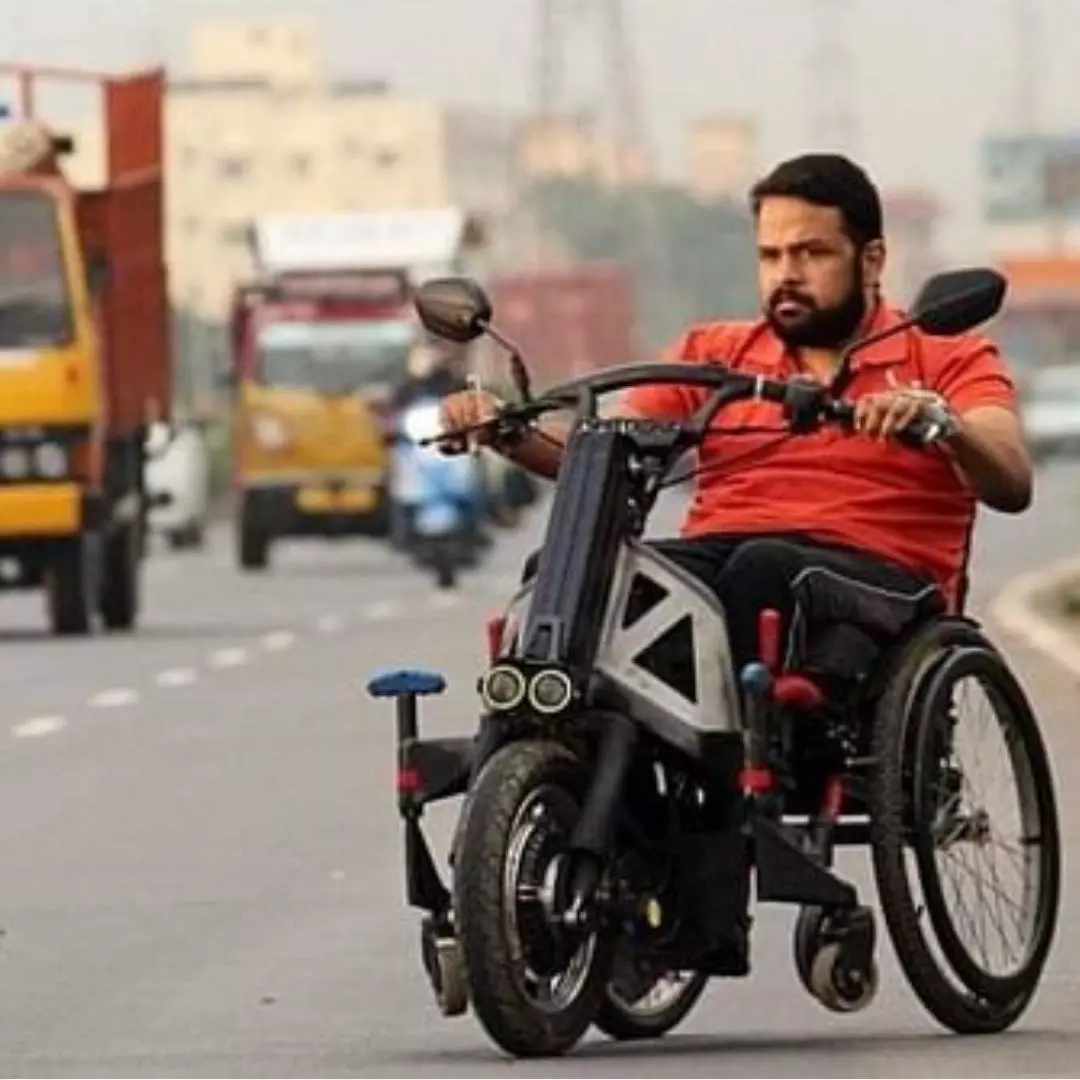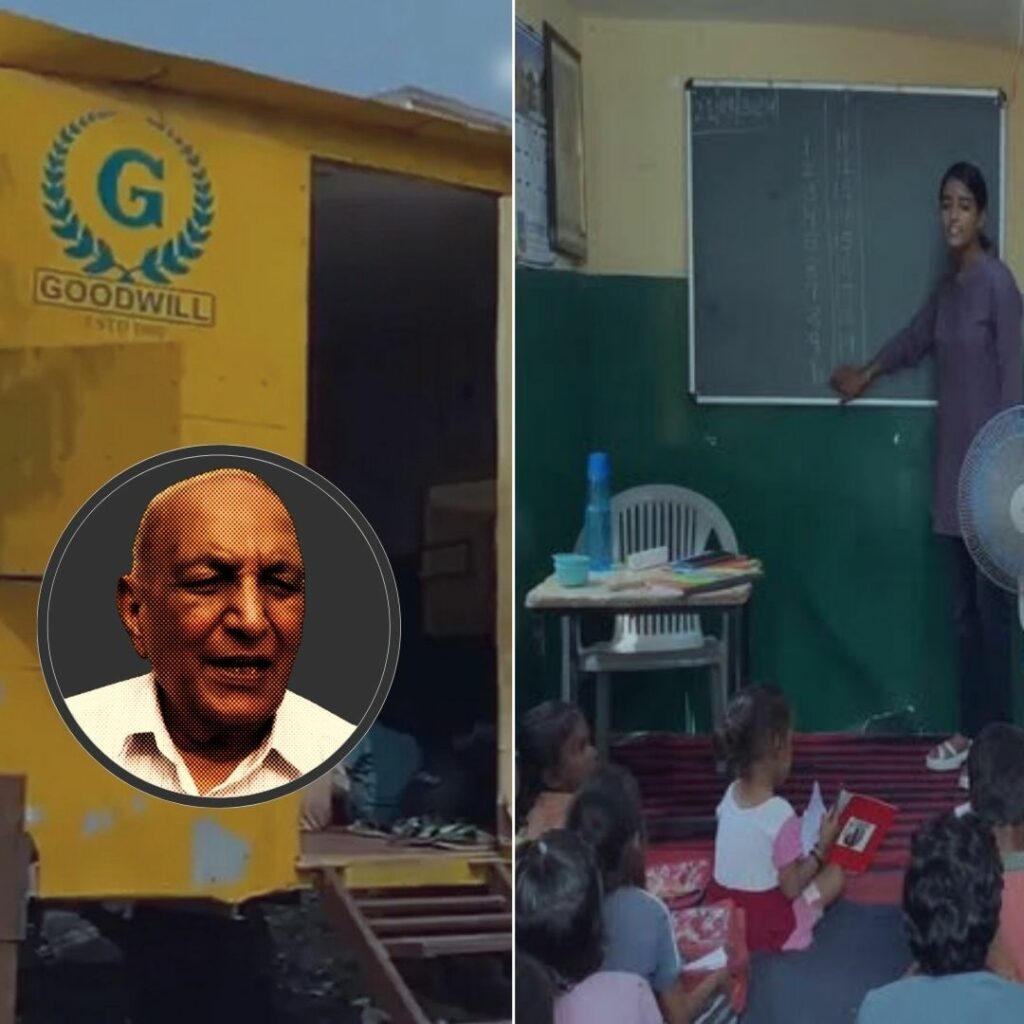India is a country that continues to be largely inaccessible to differently-abled individuals. Wheelchair users have time and again shown how several public facilities across the country are not made in a disable-friendly manner. Due to this, most times, people with disabilities hesitate to step out as it is a tedious task and often unsafe for them. Bringing forth a solution to this problem, an Odia-based IIT Madras alumni, Swastik Saurav Das, has made India’s first-ever indigenous motorised wheelchair – NeoFly and NeoBolt. The motorised wheelchair is designed in a way such that it makes mobility on streets easier for wheelchair users.
Transforming Wheelchairs And Lives
An idea incubated at the TTK Center for Rehabilitation Research and Device Development of the IIT-Madras, NeoFly, and NeoBolt are creations that would resolve the long-lying concern of wheelchair users. The former is a wheelchair customised according to the body type of the person with locomotor disability, while the latter is a motor-powered clip-on which converts NeoFly into a safe, roadworthy vehicle. It efficiently runs the wheelchair as an EV and can travel 30 km on city roads with one charge.
During his academic stint, Swastik spent the majority of his time in the institution’s Centre for Innovation designing products. He designed and developed a swimming pool lift for differently-abled persons for his final thesis. Around this time, he was introduced to the field of assistive devices and gradually developed an interest in it. Following this path of designing assistive devices, he rejoined the TTK Center for R2D2 in their standing wheelchair project. As a part of product design research, he travelled to about 40 locations across India and interacted with over 200 wheelchair users. Swastik says that it was then that he realised the mediocrity of products that existed for the mobility of wheelchair users.
A report by New Indian Express quoted Swastik saying, “Every year, five lakh wheelchairs are sold in India. Ninety-five per cent of all wheelchairs sold in India are one-size-fits-all. They restrict mobility, damage health, and lower self-confidence.” There are only a countable few wheelchair users who can safely and independently transfer into tricycles and modified scooters. Apart from them, the rest are often confined indoors due to the challenges they face outdoors. This nudged Swastik and his team to launch a startup for the research and development of wheelchairs.
Enabling People To Move Independently
The wheelchair project has been funded by the Government of India (MHRD and ICMR) and the CSR wings of HDFC and Tata and has helped over 2,500 persons with disabilities across the country. The Odisha government, in November 2022, with the help of a city-based organisation Swabhiman, distributed the NeoBolt wheelchairs to eight orthopedically challenged youths.
Similarly, the Tamil Nadu government, too, procured as many as 300 such wheelchairs and had them distributed among orthopedically challenged persons from poor backgrounds. Swastik also conveyed that the startup has recently signed an MoU with the food delivery platform Zomato to enable the employment of about 300 wheelchair users in the food delivery services. He believes that with this, wheeling a wheelchair would no longer be a tedious process for people, nor would they have to seek anyone’s help to step outside their homes.
https://thelogicalindian.com/h-upload/2023/02/27/500x300_230105-untitled-design-14.webp
Uplifting
2023-02-27 11:04:01.0
Wheeling Innovations! This Odia Engineer Turns Wheelchairs Into Motorised Electric Vehicles











